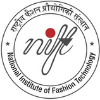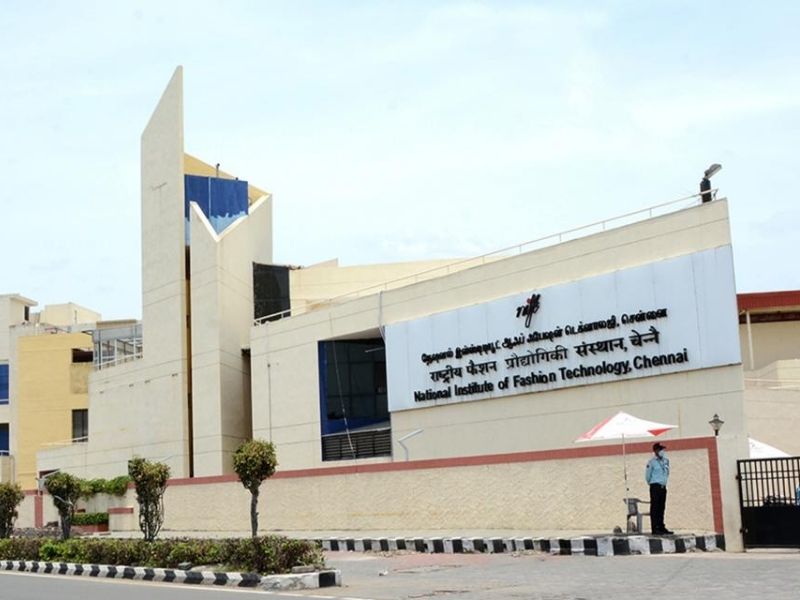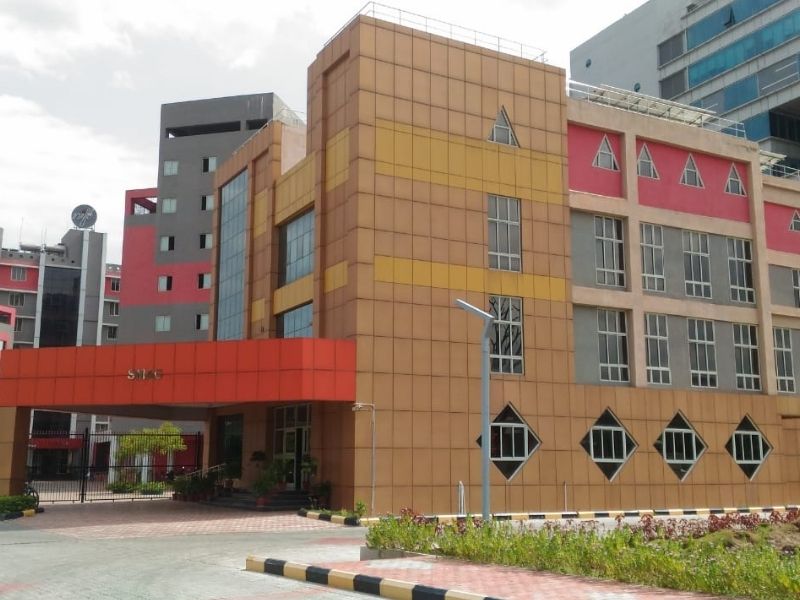

Established
1986Streams
FashionOwnership
GovernmentStatus
AutonomousCollege Type
Postgraduate, UndergraduateOverview
National Institute of Fashion Technology (NIFT), Chennai is a public autonomous fashion institute in Chennai, Tamil Nadu which was promoted in 1986 by the Ministry of Textiles, Government of India as a registered society with the status of an ‘Autonomous Body’.
The institute was established with an aim to cater to the trained manpower needs of the apparel/fashion industry for meeting the industrial competitiveness on a global plane. Over the years, NIFT has fostered a learning environment that encourages innovation, creativity and excellence.
Campus
NIFT Chennai hosts state-of-the-art facilities including an inner and outer courtyard attached with table tennis, basket ball and badminton courts and a gymnasium.
The institution offers well equipped spacious classrooms and laboratories, and transportation facility for convenience of the students.
Hostel accommodation is provided for girls. The hostel rooms are fully equipped with a full time warden, and mess facility is also provided.
Academics
Bachelor’s Programme:
B.Des. (Fashion Design)
B.Des. (Accessory Design / Leather Design)
B.Des. (Textile Design)
B.Des (Knitwear Design)
Bachelor Programme – Technology
B.FTech. (Fashion Technology)
Master Programmes:
M.F.M (Master of Fashion Management)
Placements:
NIFT Chennai, like its other campuses, has a centralized placement process overseen by the placement cell. Students are provided opportunities and workshops to learn about the technology and development of fashion businesses. The placement team of the corporate communication cell enables industry engagement with students to provide them with on-the-job experiences. Students’ professional skills and competency are enhanced by a variety of workshops, internships, industrial visits and research endeavours organised by the university, helping them with the placement procedure.
The NIFT Chennai placement cell decides the dates of campus recruitments and incites leading fashion companies for campus recruitments. Placements are conducted in two ways- the on-campus placements where recruiters visit campus on pre-fixed dates, and pre-placement offers where candidates are made job offers by companies they have worked with in internships, projects or training periods.
Recent placement highlights- The maximum CTC offered in 2018-20 placement drives was INR 5 LPA, while the average CTC stood at INR 4 LPA. Top recruiters included leading companies in the fashion technology and design sector such as H&M, Blackberrys, Future Group, Nykaa.com, Bata India Ltd. and Raymond Ltd.
General Information
 Accomodation
AccomodationAvailable
 Library
LibraryYes
 Student Mix
Student MixMen and women
 Labs
LabsYes
 Internet Wi-Fi
Internet Wi-FiYes
 Sports
SportsBasketball, Football, Tennis
Admission
Undergraduate admission- B.Des.
Selection criteria: NIFT entrance exam scores (GAT, CAT and situation test).
Eligibility: 10+2 from a recognised board.
Admission procedure:
- Candidates must apply for admissions and sit for the NIFT entrance exam.
- The candidates will have to clear three rounds of the entrance test: creative ability test (CAT- 50% weightage), general ability test (GAT- 30% wieghtage) and situation test (20% weightage).
- Candidates meeting the cut-offs will be shortlisted and eligible to attend counselling. Shortlisted candidates must attend the counselling process for seat allocation, securing which they may proceed with fee payment and document verification to confirm their admission.
Undergraduate admission- B.FTech.
Selection criteria: NIFT entrance exam scores (GAT).
Eligibility: 10+2 with PCM from a recognised board.
Admission procedure:
- Candidates must apply for admissions and sit for the NIFT entrance exam.
- The candidates will have to appear for the written general ability test (GAT) comprising 150 questions for 180 minutes.
- Candidates meeting the cut-offs will be shortlisted and eligible to attend counselling. Shortlisted candidates must attend the counselling process for seat allocation, securing which they may proceed with fee payment and document verification to confirm their admission.
Postgraduate admission- M.Des.
Selection criteria: Entrance exam scores (CAT and GAT) and performance in group discussion and personal interview.
Eligibility: Graduation (B.Des. or relevant degree) from a recognised university.
Admission procedure:
- Candidates must apply for admissions and appear for the entrance exam.
- The candidates will have to appear for the creative ability test (CAT- 40% weightage), and general ability test (GAT- 30% weightage), following which the candidates will be called for the group discussion and personal interview (GD/PI- 30% weightage).
- Candidates meeting the cut-offs will be shortlisted and eligible to attend counselling. Shortlisted candidates must attend the counselling process for seat allocation, securing which they may proceed with fee payment and document verification to confirm their admission.
Postgraduate admission- M.F.M. and M.FTech.
Selection criteria: GAT entrance scores and performance in group discussion and personal interview.
Eligibility: B.FTech. from NIFT or B.E/B.Tech. from a recognised university.
Admission procedure:
- Candidates must apply for admissions and appear for the entrance exam.
- The candidates will have to appear for the general ability test (GAT- 70% wieghtage), following which the candidates will be called for the group discussion and personal interview (GD/PI- 30% weightage).
- Candidates meeting the cut-offs will be shortlisted and eligible to attend counselling. Shortlisted candidates must attend the counselling process for seat allocation, securing which they may proceed with fee payment and document verification to confirm their admission.
Diploma admission- UG and PG diploma
Selection criteria: Academic merit and performance in personal interview.
Eligibility: 10+2 from a recognised board (for UG diploma).
Undergraduate degree in relevant stream and specialisation from a recognised university (for PG diploma).
Admission procedure:
- Candidates must apply for admissions and appear for the entrance exam.
- The candidates will be shortlisted on their academic merit, and will also have to appear for a personal interview.
- Selected candidates may proceed with fee payment and document verification to confirm their admission.
Fees: Please contact the university for detailed information on the fee structure.
Achievement
NIFT Chennai was ranked fourth for Fashion Design by India Today 2021.
Accommodation
NIFT provides hostel facility for girls with well equipped rooms and mess.





















